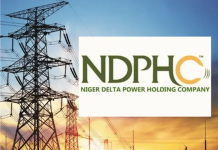Band A electricity customers, known for paying the highest tariffs in Nigeria, express growing frustration over reduced power supply following the recent national grid failures. Once guaranteed at least 20 hours of electricity daily, many now endure inconsistent supply, averaging 12 to 16 hours.
Reduced Supply Sparks Outrage
The grid collapse, which plunged much of the country into darkness, has left Band A subscribers—who pay N206 per kWh—feeling shortchanged. These customers, who represent approximately 15% of Nigeria’s 13 million electricity subscribers, previously enjoyed premium service due to their higher tariffs.
“We now get about 16 hours of power daily, which is far less than what we paid for. It’s frustrating to rely on generators again,” says Mrs. Joyce Iraboh, a Lagos resident.
Another subscriber, Mr. Ope from Ogba, echoes the sentiment: “We are billed as if we still get the promised 20 hours. This is unfair, especially since the supply is nowhere near consistent.”
Even prepaid meter users, who pay based on consumption, argue they are not receiving the uninterrupted supply expected for their unsubsidized tariff rates.
Impact on Daily Life
The shortfall has forced many Band A customers to revert to using expensive alternative energy sources, such as petrol and diesel generators. For individuals like David, a remote worker in Ojodu, this adds a financial burden. “I spend more on fuel now than I did when the grid was stable. It’s unsustainable,” he laments.
Minister of Power Adebayo Adelabu acknowledges the situation and vows to penalize Distribution Companies (DisCos) that fail to meet the 20-hour minimum service standard for Band A feeders.
Experts Highlight Infrastructure Failures
Energy experts attribute the persistent grid collapses to outdated infrastructure and insufficient investment in protective systems. Abiodun Sonekan, an energy analyst, explains, “The grid is vulnerable to issues like power line tripping and vandalism, both of which disrupt operations and delay restoration.”
Kingsley Effiong, a Lagos-based consultant, stresses the need for modern technology like the Supervisory Control and Data Acquisition (SCADA) system to prevent collapses. “Nigeria’s grid is operating with decades-old infrastructure. We need urgent investment in modernization before increasing tariffs,” he says.
Government Struggles to Fund Power Sector Reforms
The Minister of Power estimates that Nigeria requires at least $10 billion in investments to stabilize the electricity sector and achieve 24-hour power supply. However, attracting private investors remains a challenge due to the sector’s volatility.
Social Media Reactions
Frustrated customers have taken to social media to air their grievances. One user, @DelekeLaoye, tweets: “We’ve barely had 15 minutes of power today, and we’re supposed to be a Band A feeder.”
Another user, @Aryhoblueblood, adds: “Your grid stats look good on paper, but we’ve been in darkness for 24 hours. Where is the light we’re paying for?”
A Call for Urgent Action
The persistent issues with Nigeria’s national grid underscore the need for a holistic approach to power sector reform. While Band A customers continue to pay premium rates, their calls for reliable electricity remain unmet. Without immediate action to upgrade infrastructure and enforce accountability among DisCos, the promise of steady electricity supply may remain elusive.












